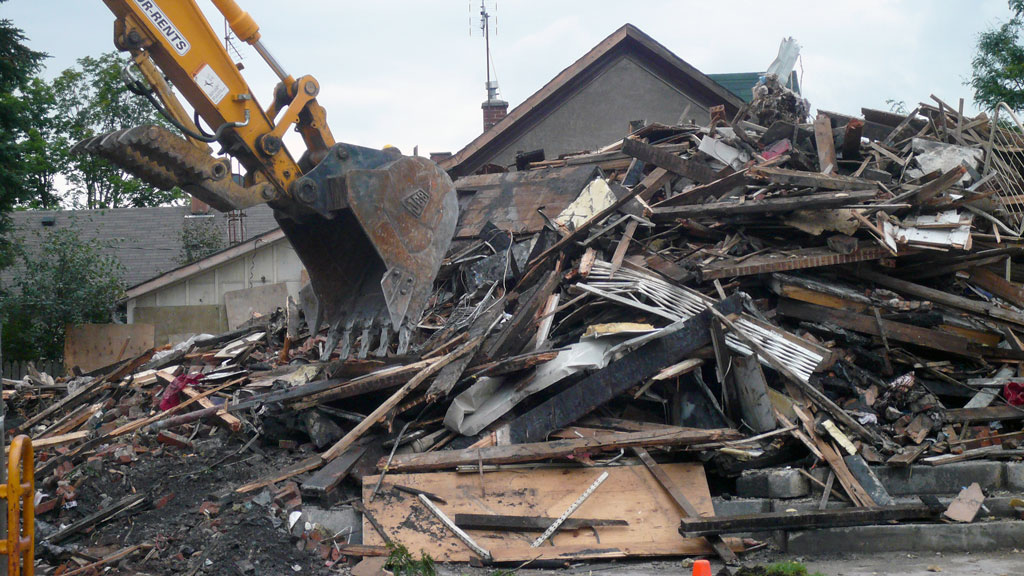A challenge has been launched by the City of Guelph and the County of Wellington, Ont. with the goal to help local businesses develop solutions to reduce construction, renovation and demolition (CRD) waste from being sent to landfill.
The Civic Innovation Challenge is being delivered as part of the Circular Opportunity Innovation Launchpad’s (COIL) Zero Waste Economic Transformation Lab which aims to provide strategies that reduce or redirect waste. The program was launched by Guelph-Wellington earlier this year.
“We have some funding to see if a company within our area wants to pilot a change in their hauling methods and it’s aimed towards a hauling company or a contractor,” said Madeline Carter, program adviser, lead with COIL.
“One thing that we identified early on is source separation is an issue. On a construction site typically, a house renovation for example, there is one dumpster and everything gets dumped in…Once those materials are co-mingled a lot of the value is lost.”
The purpose of the initiative is to keep CRD materials out of landfills.
“We’re all running out of landfill space,” Carter noted. “Construction materials are very resource heavy. Lumber and concrete, those take a lot of energy to create, so to just throw those away is not ideal.
“We should be trying to reuse or create a better purpose for these products.”
Through the challenge, COIL is looking for a local business interested in developing a new model to support onsite source separation or alternative waste hauling methods to divert CRD materials for small ICI and residential projects.
According to a release, CRD waste such as concrete, drywall, cabinetry and lumber, makes up approximately one third of the waste Canadians send to landfills every year.
Bids to develop waste diversion solutions are being accepted until 2:30 p.m. on Oct. 5. They can be submitted at Bids and Tenders – Guelph
The winner will receive $15,000 to pilot their new system along with the Smart Cities Office and the City’s Solid Waste Resources department.
Applications are also being accepted for the Circulate CoLab Challenge #3: Circular by Design CoLab – COIL.
COIL is looking to work with companies/organizations to prototype ideas in the food, environment and CRD sectors. Successful teams will receive $20,000 in funding to prototype their idea. The deadline to apply is Sept. 23 at 5 p.m.
In addition to the challenges, Carter said the team has been engaged in a research phase through the summer, with consultants working on two reports: Construction & Demolition Material Flow Analysis — Guelph/Wellington by Metabolic and Dillon Consulting; and ReBuilding the Royal City — An exploration into constructing the circular built environment in Guelph Wellington by Raphael Lopoukhine.
The second report outlines the current state of the construction industry in the region.
“We’re looking at the different economic, cultural and societal drivers that cause construction materials to either be recycled or landfilled,” explained Carter. “It’s specific to our area, Guelph and Wellington County, but it shows where the availability is for recycling versus landfilling and why things are landfilled or recycled. We did interviews throughout the summer with the different stakeholders in the industry like contractors, haulers and transfer station operators.”
Carter said the teams have connected with 30 stakeholders.
“It’s very interesting to learn from the ground what’s actually happening and the different things that are done on different sites,” said Carter.
There are places in Canada and around the world where source separation and recycling is the norm for construction waste, she added.
“There is a lot of work done throughout Canada and the United States on the circular economy within the built environment so we’re doing a lot of that background research as well.
“We’ve spoken with people in Alberta and B.C. and different places that have been able to implement circular economy practices,” Carter noted.
“There is definitely a lot to learn from other places as well and now that we’ve got all that research done we’ll be able to use our funding to create some programs and make some changes in the current system.”
The reports are currently being reviewed and findings are expected to be released in the next month.
“These reports will help us to target specific areas,” said Carter.
“We have some funding available to make some system changes and innovate within the supply chain in order to increase recycling, increase reuse and evolve the circular economy within the construction world.”
Follow the author on Twitter @DCN_Angela



Recent Comments